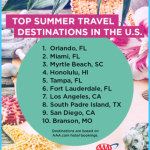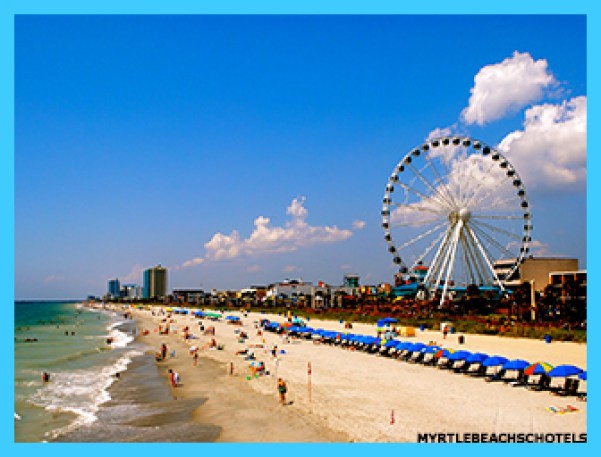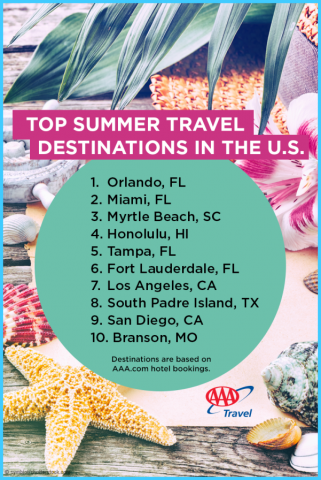
PhoCusWright (www.phocuswright.com) found that 65% of U.S. adults travel for leisure at least once each year.
The Harris Poll (www.theharrispoll.com) reported the following percentages of adults took a summer vacation:
Benefits of Vacationing
Not taking time off burns people out and can wreak havoc on productivity. Vacation deprivation is one reason workers are reporting more mistakes, anger, and resentment at co-workers, according to the Families & Work Institute (www.familiesandwork.org), which recently found that those who vacationed experienced an 82% increase in job performance post-trip.
In a recent survey by Westin Hotels & Resorts, the following percentages of employed professionals said they return from vacation relaxed and less stressed:
US Summer Vacation Photo Gallery
• Always: 43%
• Sometimes: 33%
• Never: 24%
The now-popular micro-vacations – taking two or three days off – do not deliver the same stress-reduction benefits as vacations that last one and two weeks, research shows. Experts agree that a key ingredient in peak performance is a drastic change of scenery, coupled with shutting down for extended periods of time.
A recent study published in the Journal of Travel Medicine reported that vacations with the following characteristics resulted in workers feeling more recuperated afterward:
• Visited warmer, summer climates
• Enjoyed more free time
• Exercised more
• Slept more
• Made new acquaintances
Vacations are also about health: At least two studies have correlated the stress-reducing benefits of annual vacations with lower rates of coronary heart disease.
“Research shows that vacations can reduce the risk of heart disease, depression, and a host of other ills, and even slow the aging process.”
Conde Nast Traveler
Leading edge companies are taking various approaches to encourage employees to take needed vacations. Companies such as PricewaterhouseCoopers track employees who have not taken enough vacation and send reminders to them and their supervisors suggesting that they should do so. At Intel Corp., all full-time employees get two consecutive months of paid time off after seven years of employment. They can even stack the sabbaticals on top of their regular vacation. Going in a totally different direction, Netflix Inc. has done away with vacation time altogether. The company tells workers that as long as they get their jobs done, they can take as much time off as they like. A similar approach is taken at IBM, where each of the 355,000 workers is entitled to three or more weeks of vacation. The company does not keep track of who takes how much time or when, does not dole out choice vacation times by seniority, and does not let people carry days off from year to year.
Maybe You Like Them Too
- The Best Places To Visit In North America For Christmas
- Faro Travel Guide: Map of Faro
- Mumbai Travel Guide For Tourists: Map Of Mumbai
- Travel to Budapest
- Thailand Travel Guide for Tourists: The Ultimate Thailand Map















